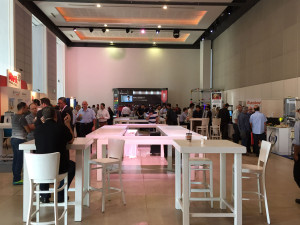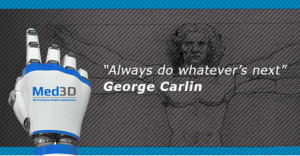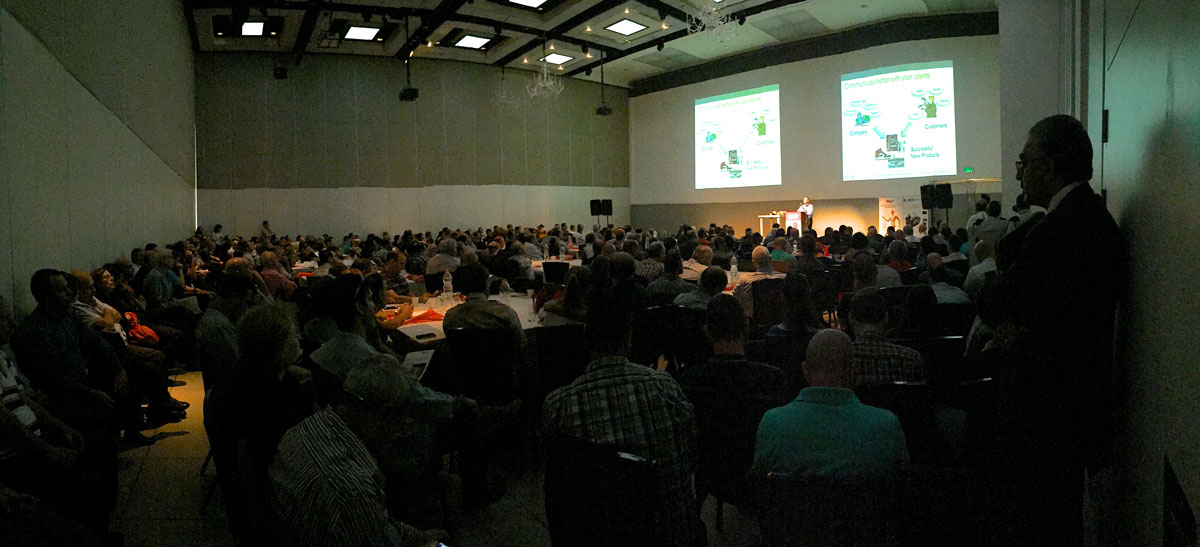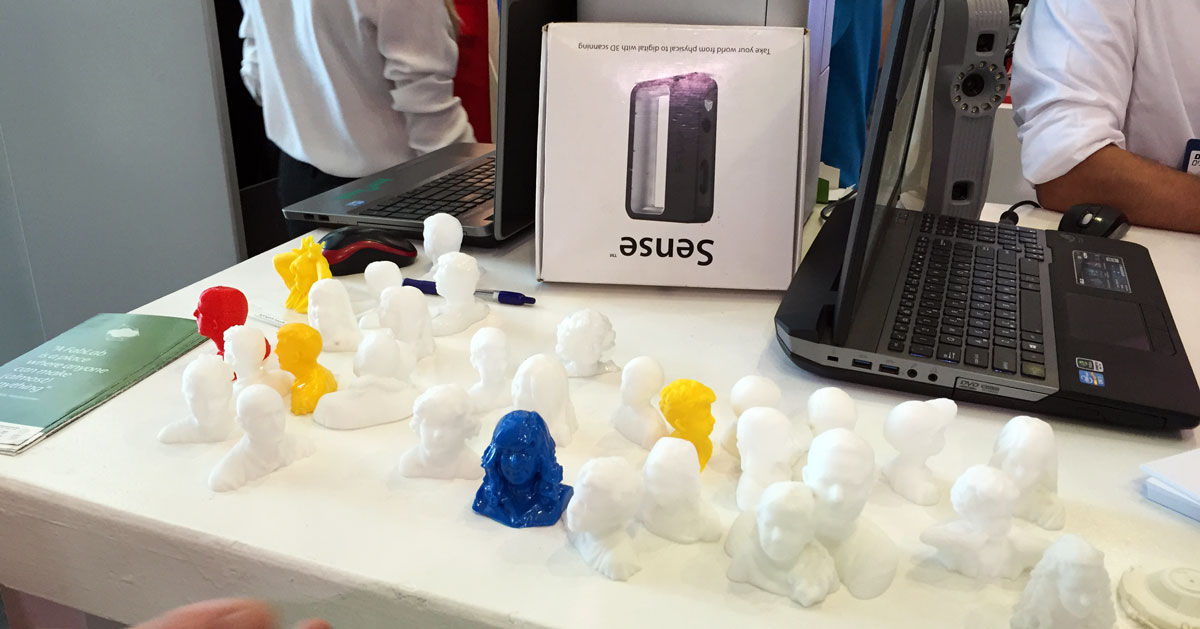There are many reasons why Israel offers an ideal landscape for the evolution of 3D printing: it is a promised land for start-ups and tech companies; it does not have many large manufacturing companies on its territory and it is (and has always been) a place of change, in continuous evolution, experiencing rapid growth.
Not to mention that Objet (now Stratasys), one of the biggest and best positioned companies in the world of 3D printing, originates from here and still has an HQ here, as does PrimeSense, the company that invented the Kinect 3D scanner. All this and more became even clearer at Israel’s first 3D Printing Conference, which took place on November 12th at the Avenue conference center in Airport City (near the Ben Gurion Airport).
The conference was split into two main halls. One with about 15 stands from 3D printer resellers and manufacturers, rapid prototypes and fab labs and the other with conferences from speakers focusing on the main aspects of the 3D printing revolution (prototyping, production, marketing, copyrighting and other primary issues) in front of an audience of around 200 people — filling every seat in the room.
Most of the top global 3D printer manufacturers were present, either directly or through a distributor. MakerBot – with Stratasys as a main sponsor – had the largest stand, while Zehavat Resin, Vice President of the Materials Business Unit at Stratasys gave one of the first speeches. Mcor and Ultimaker were both present through their local distributor Mafil Corporation. 3D Systems was also present through a local partner.

Among local players, Shachar Gafni from Fusion 3D played a major role by presenting a new modular 3D printer and holding a talk on the concept of 3D printed money as an alternative, parallel form of currency. XYZ was also present with a stand while two of the more popular desktop 3D printers, the Witbox (and Prusa i3 kit) by Spanish BQ and the BeeTheFirst by Portuguese BeeVeryCreative (fresh winner of the Make Magazine newcomer award) were presented by their Israeli partner TechFactoryPlus, a 3D print shop located between right outside Tel Aviv.

I also had the chance to meet and exchange a few words with some of the people that have been among the first and are still among the biggest creative influences on the “alternative” Israeli 3D printing scene: that which focuses on making and distributed manufacturing. Among them, some of the most inspiring were Ohad Meyuhas, founder of the first FabLab in Israel, and Roy Keidar, Co-founder and CEO of XLN a local platform to support maker spaces and communities (whose activities we have covered in the past).
In fact I spent the whole time talking to people. The enthusiasm was tangible and, although Israel is a small country, companies are present in the land that cover just about every possible aspect of industrial and consumer 3D printing. With such a leading role in the global 3D printing scene Stratasys (previously as Objet) inevitably has had (and continues to have) a very large influence on the way people see 3D printing around here: whether they agree with its approach or want to try to find equally valid alternatives, every one is considering its potential.
For example companies such as Keter, an Israeli based manufacturer of plastic furniture and accessories for the house, that is already considering the possible applications of 3D printing to its own product offer. Or Assaf Ater, who worked at Stratasys and has founded 3Ddpc, a local distributor of desktop 3D printers and filament. This is year zero for Israel’s 3D Printing Conference and it already looks like there will be many more. It’s a great place to be.




